





Tributary
Application instruction:
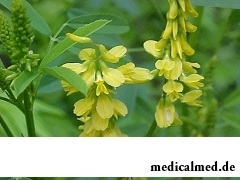 The tributary medicinal – the grassy biennial belonging to family Bean, to a subfamily Papilionaceous.
The tributary medicinal – the grassy biennial belonging to family Bean, to a subfamily Papilionaceous.
Description of a grass tributary
The tributary medicinal in height reaches 1 m. Has the much-branched stalk, small leaves, flowers of yellow color collected in alar brushes. Beans are one-seeded. The plant very fragrant, blossoms on an extent of all summer.
Plant very unpretentious and drought-resistant. In a wild look grows on roadsides of roads, on waste grounds, in ravines and meadows.
Meets in the territory of Asia, Europe, South and North America, New Zealand, in Russia and Ukraine, in Central Asia and the steppe Areas of Caucasus. This plant is often grown up especially for use in the culinary and medical purposes.
Use of the tributary medicinal
The tributary found application in traditional and scientific medicine. The grass the tributary is highly appreciated by landowners as a digestible and qualitative forage for the cattle. Besides, the plant enriches the soil with nitrogen and is fine vegetable fertilizer. And beekeepers consider donnikovy honey one of the most useful and tasty. It has a pleasant vanilla scent.
The tributary and in cookery found the application. From a young plant cook salads and soups. The grass of the tributary is dried and used as seasoning to fish, added at preparation of sauces and marinades.
In the perfumery industry of property of the tributary apply as the fixer of smells. Sometimes the plant is added to smoking mixes for a fragrance. Also the plant is very effective remedy at fight against a moth.
Chemical composition of the tributary medicinal
The fragrant pleasant smell gives to a plant coumarin. In flowers its maximum contents is revealed.
The grass of the tributary contains мелитозид, мелилотин, derivatives of coumaric acid, slime, proteic matters and essential oils.
Medicinal properties of the tributary
The tributary medicinal is very much appreciated thanks to availability of coumarin in it. Coumarin depresses a nervous system and can prevent spasms.
Researches showed that substance coumarin is capable to increase arterial pressure, improves blood circulation of a brain, abdominal organs and a myocardium, increases force of reductions of a cardiac muscle.
In addition to coumarin, the plant contains substances which give to the tributary of property of biogenic stimulators. Experiments with rats on check on survival after introduction of large doses of strychnine were made. It was revealed that water extracts of the tributary medicinal blocked toxic effect of poison and prolonged life to experimental.
Administration of drugs of a grass of the tributary stimulates phagocytal activity of leukocytes and increases their quantity.
Do decoctions and infusions of a plant, it is a part of medicinal collecting. Make a donnikovy plaster which is applied at pyoinflammatory processes of skin of it.
Inside broths and infusions accept as calming and an anticonvulsant, at coronary heart disease. At catarrhal diseases of property of the tributary apply to expectoration of a phlegm.
Outwardly the plant is used at treatment of rheumatism.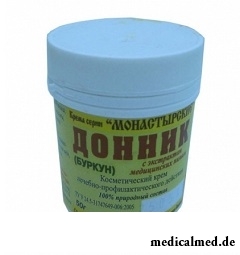
In addition, in traditional medicine the plant is used for treatment of meteorisms and locks, for treatment of female diseases and at a climax.
Ointments on the basis of the tributary purulent wounds and furuncles treat.
Donnikovy honey is also very valuable. At mastitis it is put to mammary glands, and at arthroses and arthritises do honey massage.
Contraindications to use of the tributary
The people having the lowered coagulability of blood, a disease of kidneys, a hemorrhagic vasculitis cannot accept a plant. Pregnancy is also a contraindication for reception.
In case of overdose vomiting, nausea, a headache can arise a plant.
Caries is the most widespread infectious disease in the world to which even flu cannot compete.

Striya (extension) are the defects of skin having an appearance of direct or wavy strips from 1 to 10 cm long and 1-5 mm wide. In the majority with...
Section: Articles about health
Bulimia and anorexia, are heavy deviations of a feeding behavior, become a cause of death of patients much more often than all other nervous breakdowns combined. In 60% of cases two illnesses accompany each other: patients feel horror before danger on...
Section: Articles about health
Feeding by a breast - the integral part of ideal motherhood allowing to come into contact with the kid and to create to it healthy immunity since early years. Nevertheless, this important process in life of mother and child can be saddened laktostazy − by a milk delay in a mammary gland. What main reasons for a laktostaz? How not to allow problems with breastfeeding? Let's consider 10 premises resulting in stagnation of milk at the nursing mother....
Section: Articles about health
Condition of lips (their morbidity, outward) – one of indicators of health of the person. Peeling, dryness, pallor, and also трещ...
Section: Articles about health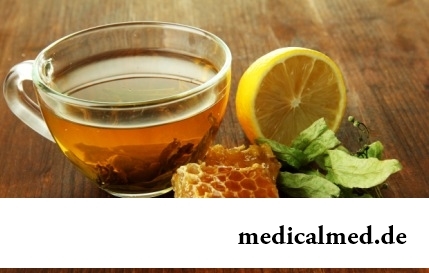
Cold – a state known to everyone which is followed by cold, cough, high temperature, a pharyngalgia. Often the first that we begin to do in hope again to become healthy – to accept medicines which are not always harmless, then...
Section: Articles about health
What they, women? Beautiful, gentle, passionate and at the same time windy, gusty, and nervous. And what is stranger: have all these qualities of the woman at the same time. But here only the mood their time sharply changes on completely opposite: in the morning they laugh and joke, and in the evening cry or are irritated....
Section: Articles about health
Frosty air, fresh wind and easy snowball at most of Russians are associated with cheerfulness, health and cheerful entertainments, on to...
Section: Articles about health
EKO, or extracorporal fertilization - a method of treatment of infertility which became the reason of a set of broken-down copies in due time accused the people working on its creation neither more nor less of rivalry good luck. Already very few people deny the rights...
Section: Articles about health
Helminthosis is one of the most widespread diseases. Statistically, any species of helminths infected every third inhabitant of the planet. Most of specialists even consider these data strongly underestimated: some uninvited "cohabitants" do not cause the carriers serious troubles, and patients just do not see doctors. The situation is aggravated also with the fact that people know about specifics of similar illnesses very little. At many presence of worms is strong ассоциир...
Section: Articles about health
Climax - process of fading of reproductive function of an organism in process of its aging. At women the main sign of its approach showing...
Section: Articles about health
Eyes – unique body on the structure thanks to which the person obtains about 80% of information on the world around: about a form, color, size, the movement, and also many other parameters of objects or phenomena. But whether much we know about the most valuable body...
Section: Articles about health
Nightmares belong to the most unpleasant frustration. Statistically, they happen at 4% of adults, and almost at 70% of children and teenagers. During a nightmare of people dreams himself in extremely difficult, life-threatening situation. He wakens suddenly, in a condition of a fright, and, as a rule, remembers the dream distinctly. The feeling of depression and alarm does not release throughout the day, creating hindrances for work and normal communication. If such episodes repeat often, can р...
Section: Articles about health
Partial and the more so full loss of hearing significantly reduces quality of life. Difficulties with communication lead to loneliness and замкн...
Section: Articles about health
We present to yours the TOP of the medicamentous means exerting the stimulating impact on a potentiality, i.e. on ability of the man to commission of sexual intercourse. At once it is necessary to tell that not always disturbances of erectile function can be eliminated with reception of t...
Section: Articles about health
The saying "the rich do not know how the other half lives" is known to all. In a broad sense it is that we can not always understand the person whose features of a state are unknown to us. If with physiological characters of diseases the situation is more or less clearly (having noticed them, we realize that to the person nezdorovitsya), then with symptoms of the illnesses affecting the mental sphere everything is much more difficult. Not absolutely usual behavior is quite often perceived surrounding as a ridiculous eccentricity, or that much ху...
Section: Articles about health
Separate food - the system of meal based on digestion physiology which is carried to improvement methods. In opinion д...
Section: Articles about health
Some people consider what for medicine of the 21st century of secrets in the field of health of the person almost does not exist. It absolutely not so. The more answers scientists receive, the more the most difficult questions are raised for them by life. Besides, there are diseases, not объясн in any way...
Section: Articles about health
White teeth and the Hollywood smile – a dream of many people. Long time was considered that the plaque on teeth and change of their color – destiny of those who incorrectly eat smokes and badly brushes teeth. But the paradox is available: at everything the variety of toothpastes, brushes existing today for toothbrushing and conditioners for a mouth the number of the people hesitating of a plaque on teeth does not decrease. Moreover, the plaque is formed even at small children who definitely do not smoke and have no coffee. So in what business, and опас...
Section: Articles about health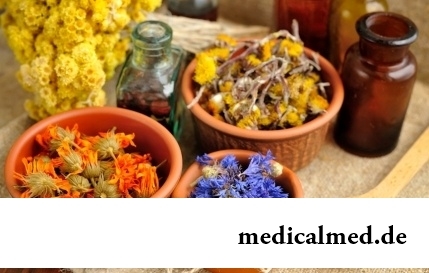
Use of medicinal plants in therapy is urgent today, more than ever. The drugs made of curative herbs cannot on...
Section: Articles about health
The majority of gynecologic diseases prove three main signs, each of which speaks about need of a visit to the gynecologist. Certainly, it is possible to establish the exact diagnosis only after inspection, but on the basis of some signs it is possible пр...
Section: Articles about health
The immunity role in growth of the child is invaluable. The proteins-immunoglobulins produced by immune system preserve the child against the diseases capable − owing to an organism weak still − to serve as a stressful factor, to become the reason of many complications and delays in development of the kid. If the immune system weakened, health of the child is under direct threat and needs active actions for strengthening of protective forces of an organism − preferably non-drug....
Section: Articles about health
One of the useful properties presented to the person by the nature is ability to feel fear. This ability is called a signal...
Section: Articles about health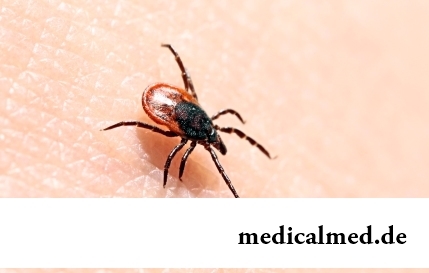
Tick-borne encephalitis – one of the most dangerous viral diseases which causative agents transfer and is given to people by ixodic mites. These are the small blood-sicking insects living in the considerable territory of our country. The person bitten by a tick can catch...
Section: Articles about health
The problem of diagnosis was and remains to one of the most important in medicine. From that, the reason of an indisposition of the patient will be how precisely defined, eventually success of treatment depends. In spite of the fact that the majority of the diagnostic methods applied in official clinical practice has very high informational content and reliability, mistakes directed by diagnoses nevertheless are not excluded....
Section: Articles about health
Subfebrile temperature call fervescence to 38 degrees, and subfebrile condition - existence of such temperature from above...
Section: Articles about health
Life of the modern woman is very difficult. Opportunities to realize itself are wide: it not only education and career, but also the most various hobbies from sport before needlework. It is not less important to build private life, paying an attention maximum to children, the husband, parents, e...
Section: Articles about health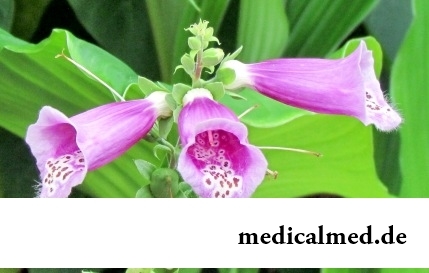
The mankind knows that some toxins at intake in the minimum quantities have therapeutic effect from an extreme antiquity. Many substances recognized poisonous are applied in the medical purposes also today, being the main operating components of the medicines which are officially produced by pharmaceutical industry. Let's tell only about the most known of them....
Section: Articles about health
